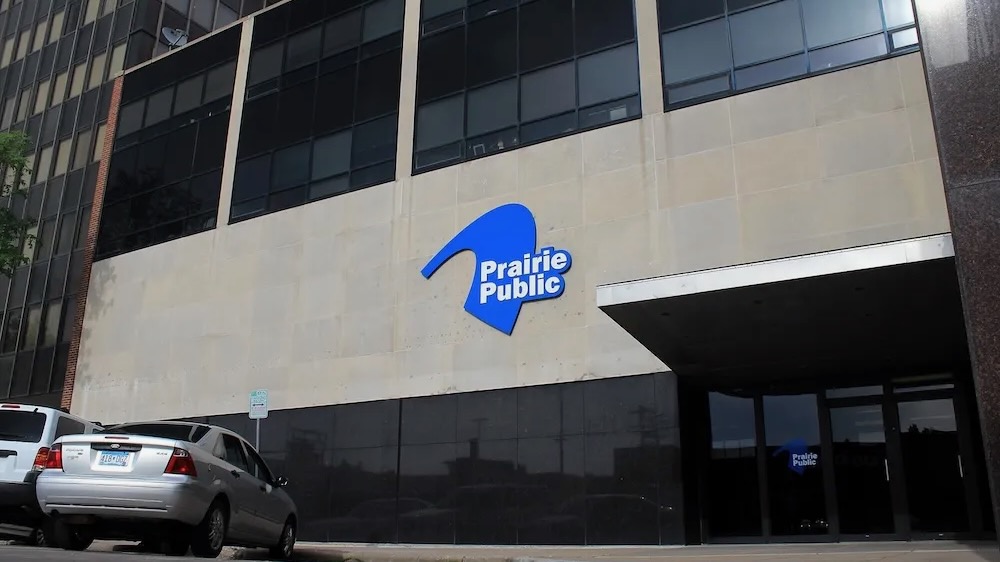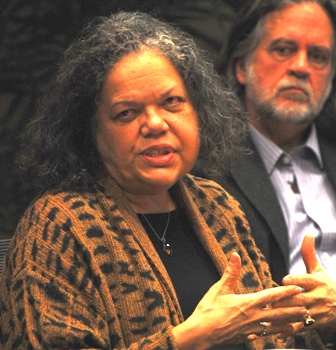North Dakota House passes bill to end funding for Prairie Public

NTox - Own work, CC BY-SA 3.0
Prairie Public's studios in Fargo.
The North Dakota House of Representatives passed a bill Monday that would eliminate the state’s funding for public broadcasting.
The state’s funding for public broadcasting goes to Prairie Public in Bismarck.
House Bill 1255, introduced Jan. 13, would bar any “state officer” from spending “state funds or federal funds … to directly or indirectly support public broadcasting.”
Lawmakers voted 61 to 32 Monday to pass the bill, with one “absent or excused and not voting.” The bill now advances to the House Appropriations Committee for review.
Following a hearing of the bill Thursday during a House Political Subdivisions committee session, the committee voted 8-4 to give a “do not pass” recommendation on the legislation.
“The committee felt that the programming of Prairie Public Broadcasting was still an important part of the educational and cultural programming in the state of North Dakota,” Rep. Jonathan Warrey, a Republican who voted against the bill, said on the House floor Monday prior to the bill’s passage. “Could it be a standalone nonprofit with the support of its various revenue streams and stakeholders? It’s possible. But it could also cause donors to pull their contributions and hurt the financial stability of the entity.”
Republican Rep. Vicky Steiner, a Republican, said during discussion of the bill that she supported it because “PBS pushes a national and state narrative on pro-choice. I’ve called and actually complained in the past. They don’t give equal time to the pro-life discussion at all.”
According to Prairie Public’s most recent audited financial report, the station received nearly $1.5 million from the state of North Dakota in fiscal year 2023, less than 10% of its revenue.
“In this DOGE era of budgetary sense, this money would be better allocated to other public services like education, health care or infrastructure,” said Republican Rep. Jorin Johnson, who sponsored the bill, during the hearing Thursday. “North Dakota taxpayers should have the choice whether to fund media rather than it being a compulsory tax.”
DOGE is the Department of Government Efficiency, the temporary organization established by President Trump that aims to cut government spending. Elon Musk and Vivek Ramaswamy, whom Trump originally named as DOGE’s leaders, cited CPB as a target for spending cuts in a November Wall Street Journal op-ed.
Despite his sponsorship of the bill, Johnson called himself a “fan” who watches This Old House and previously listened to Car Talk and The Thomas Jefferson Hour, a former Prairie Public radio program.
“But the original mission is no longer accurate with the explosion of digital media, streaming services and content creators,” he added. “The necessity of public broadcasting is in question. There’s an abundance or free or low-cost content available online, suggesting that public broadcasting is now redundant.”
When asked by Democratic Rep. LaurieBeth Hager about how the bill might hurt access for low-income people in her district, Johnson said he could “appreciate the sentiment” and that “it would be maybe a loss for those folks.”
No other lawmakers spoke in support of the bill.
Prairie Public CEO John Harris spoke in opposition to the bill and urged committee members not to pass it. “Passage of HB 1255 would jeopardize some of our resources to homes, schools, and workplaces throughout the state,” he said.
“State money is also used to help us qualify for other support” such as grants and CPB funding, he said. The reduced funding would require Prairie Public to cut local programs and services, he said.
Nick Archuleta, president of North Dakota United and a Prairie Public board member, spoke in opposition to the bill along with a member of the public.
“North Dakota is well served by Prairie Public Broadcasting, and we are very appreciative of the investments that the legislative assemblies have historically made to our organization,” Archuleta said. “It’s my hope that support will continue.”
Members of the public submitted 29 written testimonies opposing the bill. There were none in favor.
This post has been updated with the results of Monday’s vote and statements from lawmakers.
Correction: An earlier version of this article incorrectly said that the committee’s “do not pass” vote killed the bill. The bill advanced to the House despite the vote.







When they got political leaning it was only a matter of time.
This is political. Republicans don’t care bout the people just their pocketbook and fetuses unless the fetus is an immigrant trans or gay.
A fetus is an unborn human fyi
Stupid orange freak tells Republicans what to do and they do it. Mindless, whatever happens to whoever voted for any Republicans has a lot to explain when they are before The Great White Throne being condemned for their sins.
Where can we see how our representatives voted?
Hi Mary, you can see the votes on this page — you need to click on “61-32-1” in the “ROLL CALL” column. https://ndlegis.gov/assembly/69-2025/regular/bill-actions/ba1255.html?bill_year=2025&bill_number=1255
I would like to see PBS to continue to be funded.. there are plenty of us that enjoy the programming a lot! My kids grew up watching.. and it was safe place to learn things about the world. My husband and I are patrons. We really enjoy the BBC shows not to mention artists( music , gardening, about other communities in our viewing area.. I cannot say enough about the good this media does! Please keep the funding…
It’s heartbreaking for me to see that those I. Charge of North Dakota want to take awy funding for Prarie public . These people should be ashamed of themselves
PLEASE DO NOT REMOVE THE FUNDING FROM PRAIRE PUBLIC TV.! OUR STATE NEEDS THE TYPE OF PROGRAMING THAT ONLY THEY CAN PROVIDE; THEY COVER EVERYTHING FROM CHILDREN’S EDUCATONAL PROGRAMING TO YOUNG ADULTS TO SENIOR CITIZENS. CHILDREN’S PROGRAMING IS EDUCATIONAL AND ADULT PROGRAMING IS ENTERTAINING AND EDUCATIIONAL. OUR STATE HAS ENOUGH RESOURCES TO PROVICE THIS SERVICE TO OUR RURAL STATE POPULATION AS WELL AS OUR URBAN AREA. PLEASE KEEP PPTV ALIVE!